Simply put, “Farmlink would not exist without Jocelyn Cortese. There’s no question about that.”
Growing up being best friends with Jack Cortese, Farmlink Cofounder and Co-Chief Executive Officer James Kanoff spent a lot of time in the Cortese household. In fact, Cortese considers Kanoff to be one of her own children. Ever since the kids were young, Cortese would bring them to food banks in Los Angeles, teaching them the importance of giving back to their community. “She has always been a voice for how we can serve others and help other people,” Kanoff said. “That was always a huge influence on me and my friend group. We wouldn’t have even thought about Farmlink without some of those values being instilled.”
Aside from instilling values of generosity and kindness Cortese also connected the founders to Westside Food Bank, where The Farmlink Project made its first delivery. Today, Cortese helps with a variety of tasks, from connecting with food banks, grant writing, and finding passionate students to join the team. Emma Worth, Vice President of Development, said that Cortese is invaluable for her “quiet yet steadfast support,” adding, “as a role model and a mentor, she has meant so much to The Farmlink Project.” It's important to note that Cortese has no selfish ambitions with her work. In fact, she deflected any compliments that came her way during the interview for this article, redirecting attention to the students working on The Farmlink Project team.
Cortese has brought much of her family to The Farmlink Project as well. Her son Jack “literally drove the first truck that went from the first farm to the first food bank,” Kanoff said. “Her daughter is now an absolute champion leading Farmlink expansion, helping set up infrastructure in places that don’t have access to food. It’s Jocelyn, but it’s the Cortese team… it’s a really unique contribution that I think goes unrecognized.” Worth added the “can-do attitude and prioritization of social good” has clearly been passed on from Cortese to her children.

We spoke with Jocelyn Cortese to hear about her experience. Below is an edited transcript of what she had to say.
I grew up in a farming community in Northern California. The town is Willows, it's 4000 people and primarily rice farming, and ranching and almonds. Then I came down to live in a big city and I got involved with nonprofit work, including West Side Food Bank.
It started from the point of view of being a mother and trying to teach my kids that you're never in it alone, that you have to be a citizen of the community of the world. The easiest way to teach a tiny kid is to say, ‘Not everyone has enough food in their refrigerator.’ We always thought about it at our house. You always had to collect cans for your birthday instead of receiving a gift. My kids went to St. Matthew’s Parish School, and the school and church included so many age-appropriate activities related to food insecurity.
When they got older, I would take them to the food bank, and the kids at a really young age understood that $1 provides four meals. So it just started because I wanted the kids to understand food insecurity. And then I became a board member. I would bring the kids to work with me, and they started seeing from a young age how the process works. They were part of it. And they were great. James and Aidan growing up, they just are born entrepreneurs. And they were always like, “Well, wait, why doesn't everyone have a snack? Shouldn't we come up with a solution?” They always believed that they could solve any problem, and we never discouraged them. I’m so proud that they could take this problem and turn that into a social societal change.
So, the start. COVID was starting and no one was going to restaurants. They figured out that restaurants were not buying food anymore, there's this break in the system. So Aidan,James, and Jack wanted to have a conference call with me. They're always up to something. I thought they were going to do a video for Westside Food Bank. And then we got on this call. And of course, they're all in college now, and were asking me the most incredible questions about trucking distribution. Why are people plowing the potatoes under? What does Westside Food Bank need? They were asking freight questions. I was like, oh, y'all grew up.
Then soon enough, they had figured out how to get eggs from somewhere in central California, rented a U haul, and drove up to bring them to Westside Food Bank. Eggs are gold. They're expensive, everyone needs them, and they’re cheap protein. So they went and got these eggs in a U haul, and brought them to the west side food bank. Then, in my lens, five seconds later, they had 200 volunteers and were national.
The systems for food banks and farms have been broken all along, and everyone knows it. But these grown-ups work around it. It took 20 year olds to say no, we’re going to figure it out. James,Aidan, and Jack just skipped it, and went on to begin to change this and turn the system sideways, because it's broken.
They created something that is so beyond my wildest dreams. I just couldn't be prouder of them. I'm here if they ever need me for anything, I believe in them. The idea that they won’t hear of any barriers, they’re just about solving the problem. It is so beautiful, and so contagious. It's the great gift of my life, these kids, what they did.
< Back
Simply put, “Farmlink would not exist without Jocelyn Cortese. There’s no question about that.”
Growing up being best friends with Jack Cortese, Farmlink Cofounder and Co-Chief Executive Officer James Kanoff spent a lot of time in the Cortese household. In fact, Cortese considers Kanoff to be one of her own children. Ever since the kids were young, Cortese would bring them to food banks in Los Angeles, teaching them the importance of giving back to their community. “She has always been a voice for how we can serve others and help other people,” Kanoff said. “That was always a huge influence on me and my friend group. We wouldn’t have even thought about Farmlink without some of those values being instilled.”
Aside from instilling values of generosity and kindness Cortese also connected the founders to Westside Food Bank, where The Farmlink Project made its first delivery. Today, Cortese helps with a variety of tasks, from connecting with food banks, grant writing, and finding passionate students to join the team. Emma Worth, Vice President of Development, said that Cortese is invaluable for her “quiet yet steadfast support,” adding, “as a role model and a mentor, she has meant so much to The Farmlink Project.” It's important to note that Cortese has no selfish ambitions with her work. In fact, she deflected any compliments that came her way during the interview for this article, redirecting attention to the students working on The Farmlink Project team.
Cortese has brought much of her family to The Farmlink Project as well. Her son Jack “literally drove the first truck that went from the first farm to the first food bank,” Kanoff said. “Her daughter is now an absolute champion leading Farmlink expansion, helping set up infrastructure in places that don’t have access to food. It’s Jocelyn, but it’s the Cortese team… it’s a really unique contribution that I think goes unrecognized.” Worth added the “can-do attitude and prioritization of social good” has clearly been passed on from Cortese to her children.

We spoke with Jocelyn Cortese to hear about her experience. Below is an edited transcript of what she had to say.
I grew up in a farming community in Northern California. The town is Willows, it's 4000 people and primarily rice farming, and ranching and almonds. Then I came down to live in a big city and I got involved with nonprofit work, including West Side Food Bank.
It started from the point of view of being a mother and trying to teach my kids that you're never in it alone, that you have to be a citizen of the community of the world. The easiest way to teach a tiny kid is to say, ‘Not everyone has enough food in their refrigerator.’ We always thought about it at our house. You always had to collect cans for your birthday instead of receiving a gift. My kids went to St. Matthew’s Parish School, and the school and church included so many age-appropriate activities related to food insecurity.
When they got older, I would take them to the food bank, and the kids at a really young age understood that $1 provides four meals. So it just started because I wanted the kids to understand food insecurity. And then I became a board member. I would bring the kids to work with me, and they started seeing from a young age how the process works. They were part of it. And they were great. James and Aidan growing up, they just are born entrepreneurs. And they were always like, “Well, wait, why doesn't everyone have a snack? Shouldn't we come up with a solution?” They always believed that they could solve any problem, and we never discouraged them. I’m so proud that they could take this problem and turn that into a social societal change.
So, the start. COVID was starting and no one was going to restaurants. They figured out that restaurants were not buying food anymore, there's this break in the system. So Aidan,James, and Jack wanted to have a conference call with me. They're always up to something. I thought they were going to do a video for Westside Food Bank. And then we got on this call. And of course, they're all in college now, and were asking me the most incredible questions about trucking distribution. Why are people plowing the potatoes under? What does Westside Food Bank need? They were asking freight questions. I was like, oh, y'all grew up.
Then soon enough, they had figured out how to get eggs from somewhere in central California, rented a U haul, and drove up to bring them to Westside Food Bank. Eggs are gold. They're expensive, everyone needs them, and they’re cheap protein. So they went and got these eggs in a U haul, and brought them to the west side food bank. Then, in my lens, five seconds later, they had 200 volunteers and were national.
The systems for food banks and farms have been broken all along, and everyone knows it. But these grown-ups work around it. It took 20 year olds to say no, we’re going to figure it out. James,Aidan, and Jack just skipped it, and went on to begin to change this and turn the system sideways, because it's broken.
They created something that is so beyond my wildest dreams. I just couldn't be prouder of them. I'm here if they ever need me for anything, I believe in them. The idea that they won’t hear of any barriers, they’re just about solving the problem. It is so beautiful, and so contagious. It's the great gift of my life, these kids, what they did.
Jocelyn Cortese
Farmlink Mom
Simply put, “Farmlink would not exist without Jocelyn Cortese. There’s no question about that.”
Growing up being best friends with Jack Cortese, Farmlink Cofounder and Co-Chief Executive Officer James Kanoff spent a lot of time in the Cortese household. In fact, Cortese considers Kanoff to be one of her own children. Ever since the kids were young, Cortese would bring them to food banks in Los Angeles, teaching them the importance of giving back to their community. “She has always been a voice for how we can serve others and help other people,” Kanoff said. “That was always a huge influence on me and my friend group. We wouldn’t have even thought about Farmlink without some of those values being instilled.”
Aside from instilling values of generosity and kindness Cortese also connected the founders to Westside Food Bank, where The Farmlink Project made its first delivery. Today, Cortese helps with a variety of tasks, from connecting with food banks, grant writing, and finding passionate students to join the team. Emma Worth, Vice President of Development, said that Cortese is invaluable for her “quiet yet steadfast support,” adding, “as a role model and a mentor, she has meant so much to The Farmlink Project.” It's important to note that Cortese has no selfish ambitions with her work. In fact, she deflected any compliments that came her way during the interview for this article, redirecting attention to the students working on The Farmlink Project team.
Cortese has brought much of her family to The Farmlink Project as well. Her son Jack “literally drove the first truck that went from the first farm to the first food bank,” Kanoff said. “Her daughter is now an absolute champion leading Farmlink expansion, helping set up infrastructure in places that don’t have access to food. It’s Jocelyn, but it’s the Cortese team… it’s a really unique contribution that I think goes unrecognized.” Worth added the “can-do attitude and prioritization of social good” has clearly been passed on from Cortese to her children.

We spoke with Jocelyn Cortese to hear about her experience. Below is an edited transcript of what she had to say.
I grew up in a farming community in Northern California. The town is Willows, it's 4000 people and primarily rice farming, and ranching and almonds. Then I came down to live in a big city and I got involved with nonprofit work, including West Side Food Bank.
It started from the point of view of being a mother and trying to teach my kids that you're never in it alone, that you have to be a citizen of the community of the world. The easiest way to teach a tiny kid is to say, ‘Not everyone has enough food in their refrigerator.’ We always thought about it at our house. You always had to collect cans for your birthday instead of receiving a gift. My kids went to St. Matthew’s Parish School, and the school and church included so many age-appropriate activities related to food insecurity.
When they got older, I would take them to the food bank, and the kids at a really young age understood that $1 provides four meals. So it just started because I wanted the kids to understand food insecurity. And then I became a board member. I would bring the kids to work with me, and they started seeing from a young age how the process works. They were part of it. And they were great. James and Aidan growing up, they just are born entrepreneurs. And they were always like, “Well, wait, why doesn't everyone have a snack? Shouldn't we come up with a solution?” They always believed that they could solve any problem, and we never discouraged them. I’m so proud that they could take this problem and turn that into a social societal change.
So, the start. COVID was starting and no one was going to restaurants. They figured out that restaurants were not buying food anymore, there's this break in the system. So Aidan,James, and Jack wanted to have a conference call with me. They're always up to something. I thought they were going to do a video for Westside Food Bank. And then we got on this call. And of course, they're all in college now, and were asking me the most incredible questions about trucking distribution. Why are people plowing the potatoes under? What does Westside Food Bank need? They were asking freight questions. I was like, oh, y'all grew up.
Then soon enough, they had figured out how to get eggs from somewhere in central California, rented a U haul, and drove up to bring them to Westside Food Bank. Eggs are gold. They're expensive, everyone needs them, and they’re cheap protein. So they went and got these eggs in a U haul, and brought them to the west side food bank. Then, in my lens, five seconds later, they had 200 volunteers and were national.
The systems for food banks and farms have been broken all along, and everyone knows it. But these grown-ups work around it. It took 20 year olds to say no, we’re going to figure it out. James,Aidan, and Jack just skipped it, and went on to begin to change this and turn the system sideways, because it's broken.
They created something that is so beyond my wildest dreams. I just couldn't be prouder of them. I'm here if they ever need me for anything, I believe in them. The idea that they won’t hear of any barriers, they’re just about solving the problem. It is so beautiful, and so contagious. It's the great gift of my life, these kids, what they did.
.png)
.jpg)
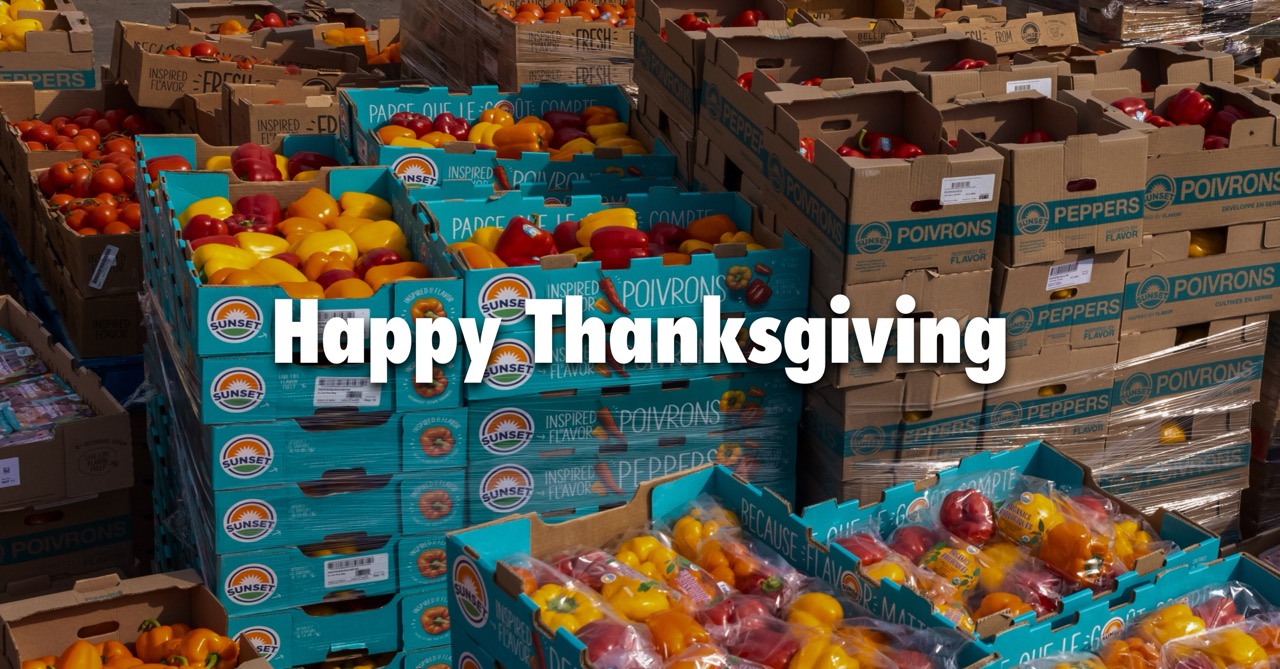
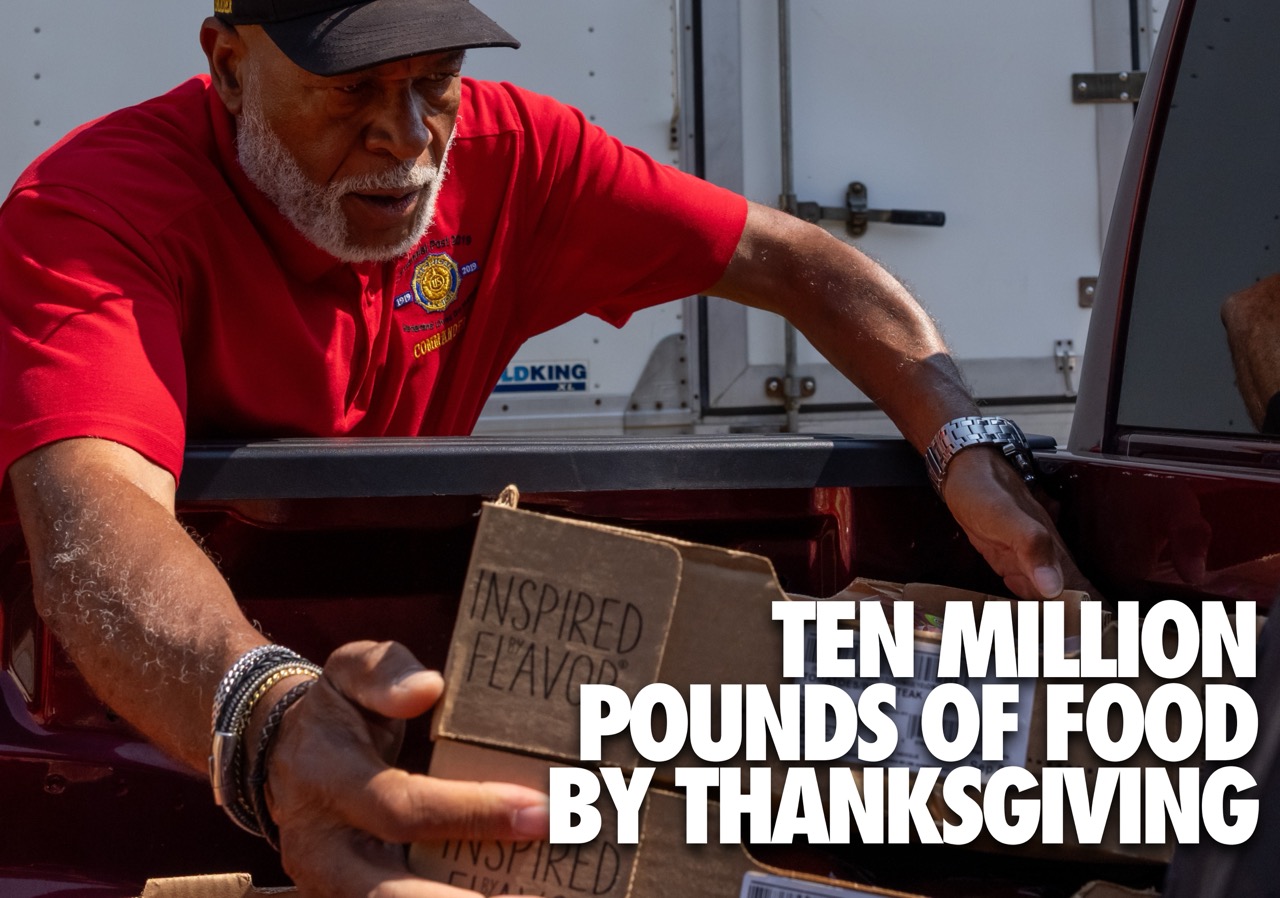
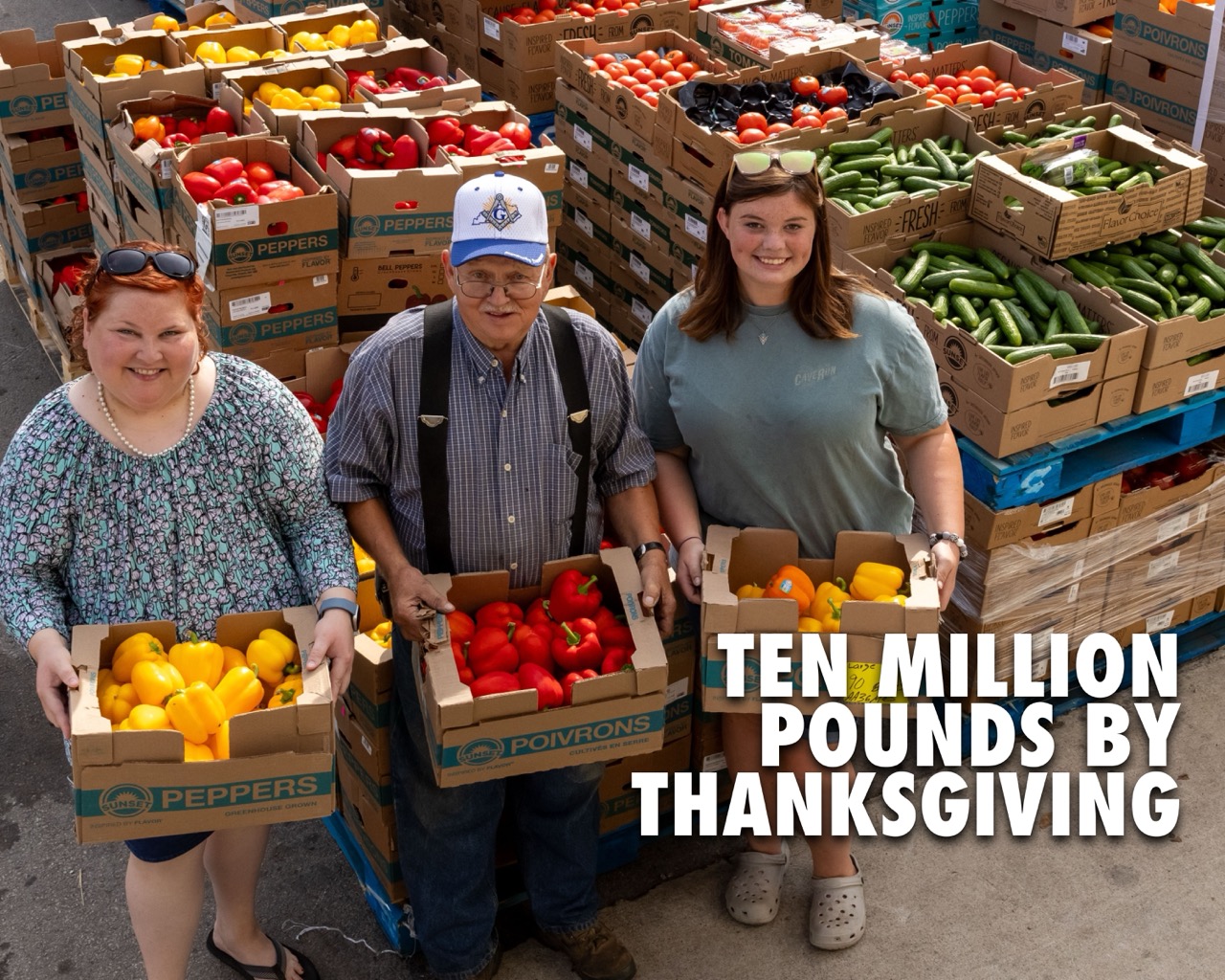
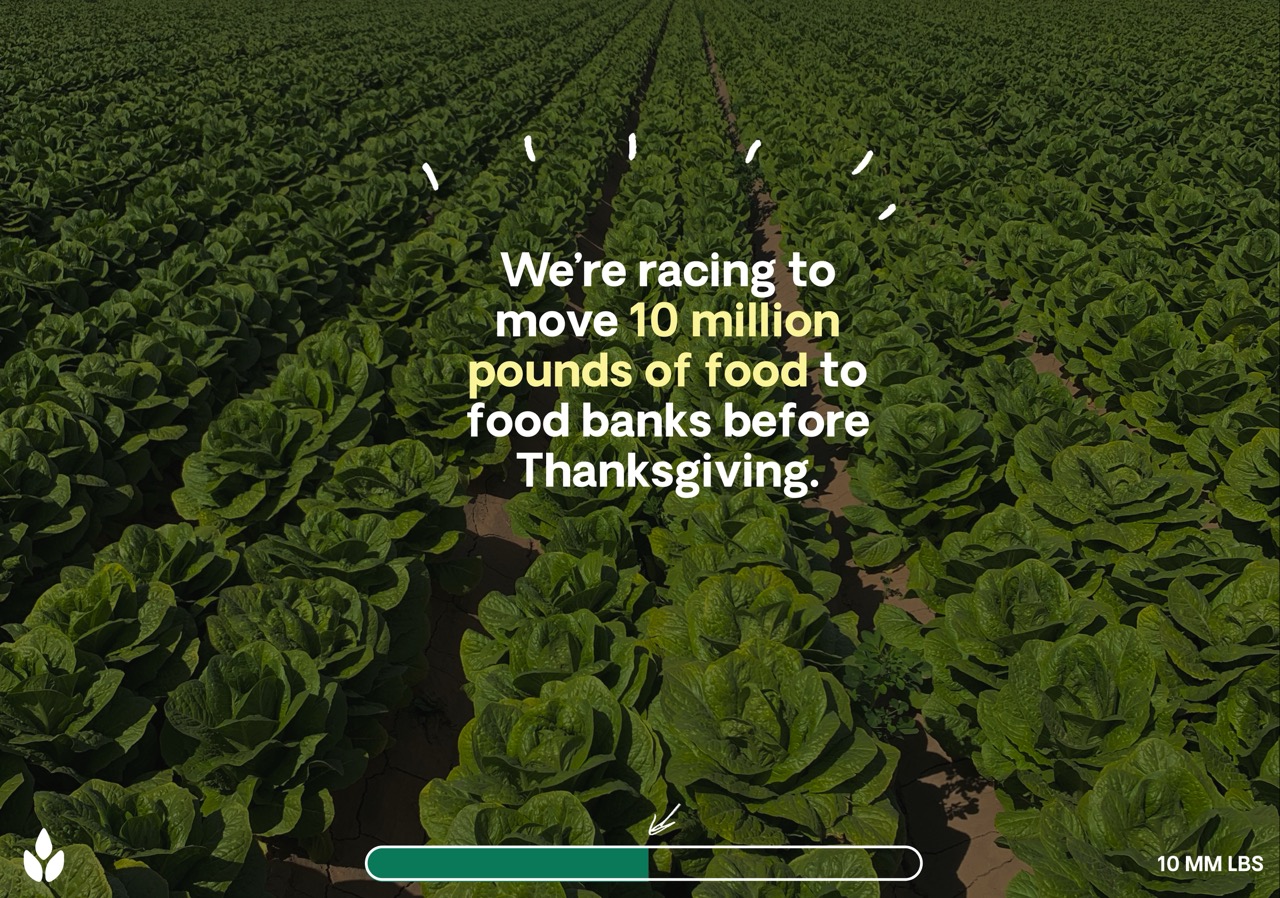
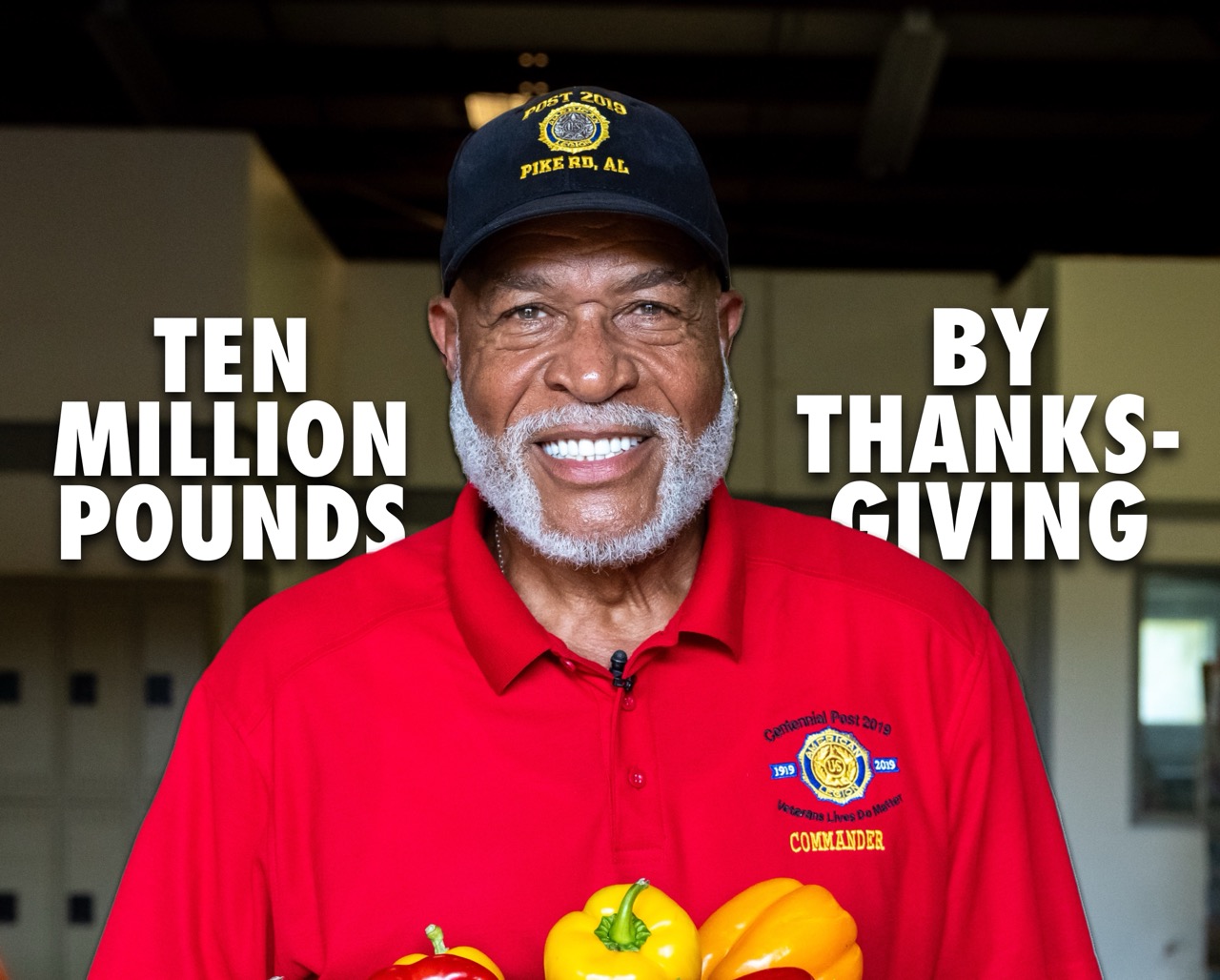
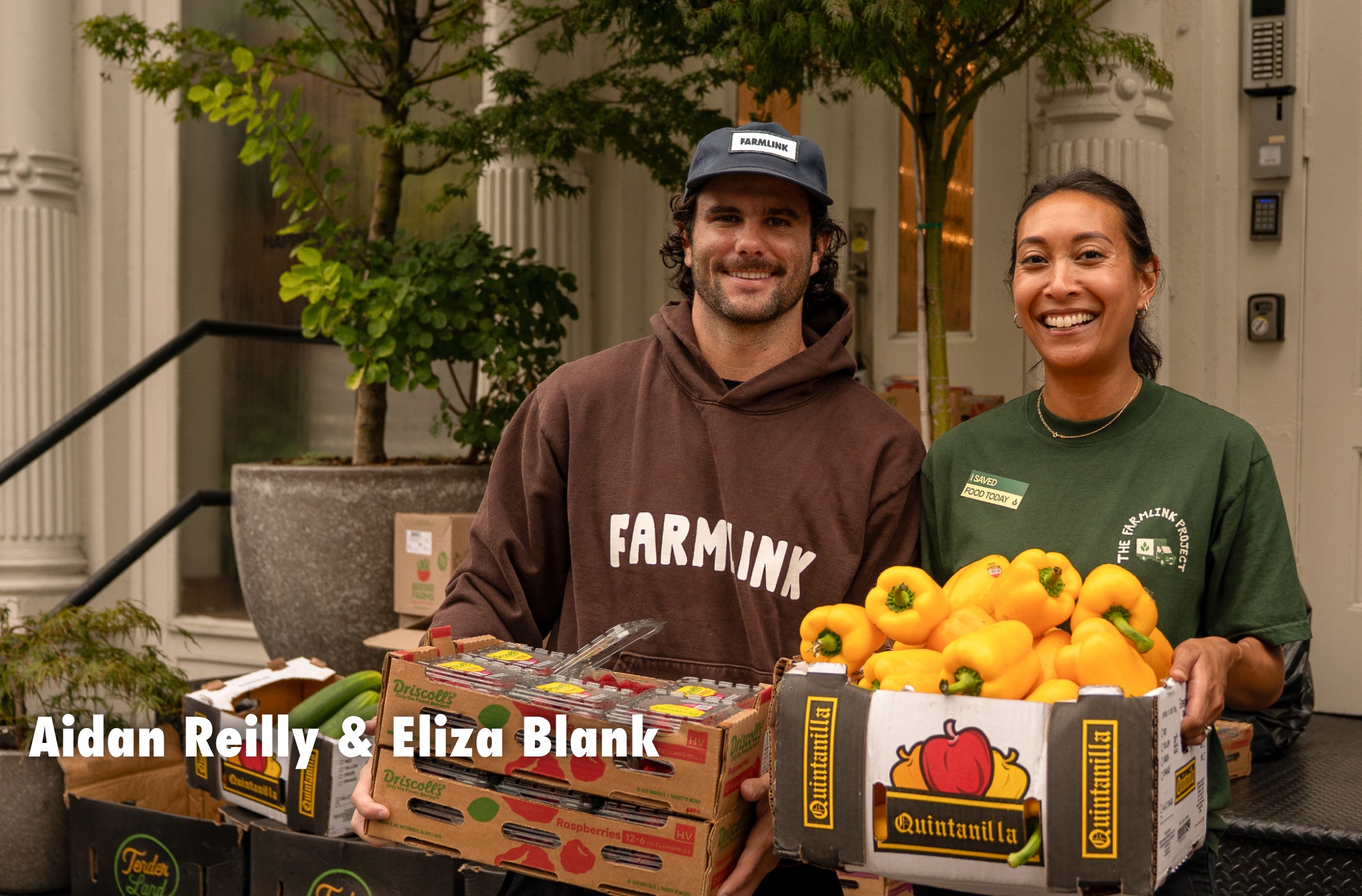
.svg)
.svg)
.svg)